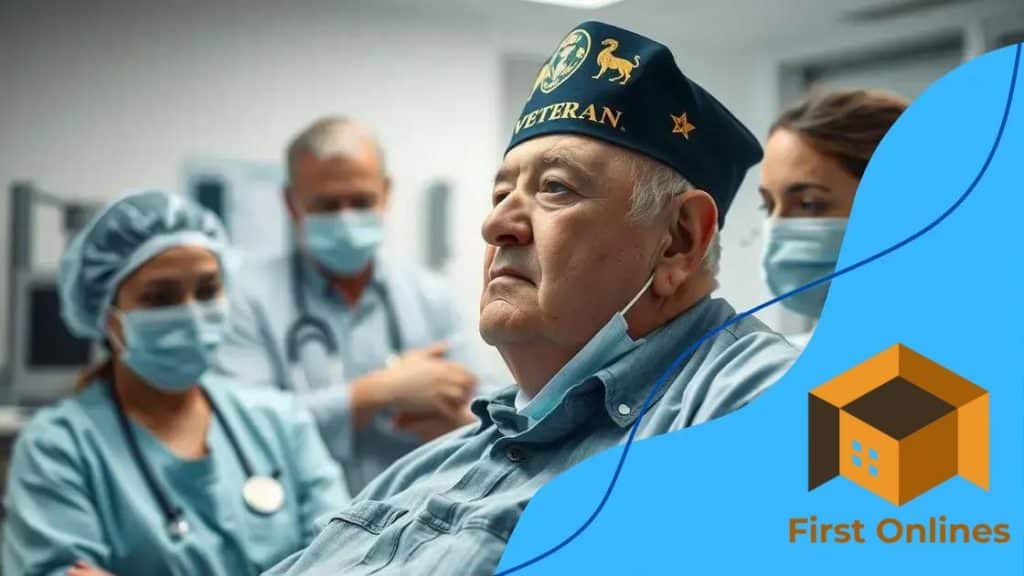Federal programs for supporting veterans’ healthcare: a guide

Anúncios
Federal programs for supporting veterans’ healthcare offer a range of essential services, including medical care, mental health support, and housing assistance to improve the lives of veterans.
Federal programs for supporting veterans’ healthcare play a crucial role in providing necessary medical services to those who have served our country. Have you ever wondered how these programs impact the health and well-being of our veterans? Let’s dive into the specifics.
Anúncios
An overview of veterans’ healthcare programs
When discussing veterans’ healthcare programs, it’s essential to understand the various support systems available to those who have served in the military. These programs ensure that our veterans receive the medical care they need and deserve.
Types of Veterans’ Healthcare Programs
Veterans have access to a wide range of healthcare options tailored to their specific needs. Some of the primary programs include:
- VA Health Care: Comprehensive medical services provided by the Department of Veterans Affairs.
- Veterans Choice Program: Allows veterans to receive care from non-VA providers if the VA system is insufficient.
- Specialty Care Programs: Focused treatment options for specific health issues like mental health or disability.
- Telehealth Services: Remote healthcare consultations and follow-ups for convenience.
Additionally, the VA offers programs dedicated to mental health care. Programs such as the Vet Center provide counseling services, which can be crucial for veterans dealing with PTSD or other emotional challenges. The focus on mental health reflects a growing understanding of the complexities that veterans face when transitioning back to civilian life.
Anúncios
Quality of Care
Many veterans express concerns over the quality and accessibility of care. The VA continuously works to improve its services, aiming to reduce wait times and enhance the patient experience. Feedback from veterans has helped shape reforms, ensuring that healthcare delivery meets their expectations.
Understanding and navigating these programs can seem overwhelming at first. However, numerous resources are available to assist veterans in accessing the care they need. Organizations that specialize in veteran services often provide guidance, making the process smoother for veterans and their families.
By highlighting the importance of veterans’ healthcare programs, we can better appreciate the sacrifices made by our military personnel. Staying informed about these options allows veterans to take charge of their health and ensure they receive the comprehensive care they deserve.
Eligibility criteria for healthcare support

Understanding the eligibility criteria for healthcare support is vital for veterans seeking medical assistance. Each program has specific requirements that help determine whether a veteran qualifies for services.
General Eligibility Requirements
Most federal programs, including those managed by the VA, have common eligibility criteria that veterans need to meet. These can include:
- Service Duration: Typically, veterans must have served a minimum amount of time in the military.
- Discharge Status: Veterans must have an honorable discharge to qualify for most healthcare benefits.
- Income Limits: Some programs consider the veteran’s income level to determine eligibility for specific services.
- Health Needs: Certain healthcare support may be available based on specific health conditions or disabilities.
It’s important for veterans to check their eligibility as these factors may vary between programs. For instance, the Veterans Health Administration provides services to veterans with service-connected disabilities, allowing them to receive care beyond general health needs.
Applying for Benefits
The application process for healthcare support typically involves submitting a claim and providing relevant documentation. Veterans should prepare to include discharge papers, proof of income, and information about any health issues. Gathering these documents in advance can make the process smoother.
Veterans may also want to seek assistance from organizations that help navigate the application process. Resources such as veterans’ service organizations can provide guidance, ensuring veterans understand what is required of them.
By being informed about the eligibility criteria, veterans can better access the comprehensive healthcare support available to them. This knowledge empowers veterans to pursue their well-being actively.
How to access federal healthcare services
Accessing federal healthcare services can feel complex for many veterans. However, knowing the steps can make the process easier and more straightforward. It’s important for veterans to understand how to navigate these services to ensure they receive the care they need.
Steps to Access Healthcare Services
The first step for veterans is to enroll in the VA healthcare system. This is crucial for anyone seeking access to federal healthcare benefits. Veterans can enroll online through the VA’s website, by mail, or in person at a local VA facility. During enrollment, veterans will need to provide personal information and any necessary documentation.
- Gather Required Documents: Veterans should collect discharge papers, proof of income, and any relevant medical records.
- Complete the Enrollment Form: The VA enrollment application form must be filled out carefully. This can also be done online.
- Eligibility Determination: Once the application is submitted, the VA will review the submission to determine eligibility.
After enrollment, veterans can access a variety of services. If a veteran qualifies, they can receive care at VA medical centers or community-based outpatient clinics. Community care may be available for veterans who cannot access services within the VA system. In such cases, veterans will receive referrals for care from non-VA providers.
Understanding the Care Options
It’s also essential for veterans to understand what types of services are covered. VA healthcare includes primary care, mental health services, specialty care, and preventive services. Familiarity with these options allows veterans to make informed decisions about their healthcare. For those seeking mental health treatment, the VA offers specific programs aimed at addressing issues like PTSD and anxiety.
Veterans can call the VA hotline or visit local VA offices for additional information and support. Utilizing available resources enhances the likelihood of successful navigation through the system.
Staying informed and proactive is key to accessing federal healthcare services. By understanding enrollment processes and available care options, veterans can ensure they receive the comprehensive healthcare they deserve.
Resources available for mental health support

Mental health support is crucial for veterans as they adjust to civilian life. There are many resources available for mental health support, making it easier for veterans to seek help. Understanding these resources can lead to better mental well-being and quality of life.
Types of Mental Health Resources
The VA offers various mental health services tailored to veterans’ needs. These include:
- Counseling Services: The VA provides access to confidential therapy sessions with licensed professionals.
- Support Groups: Veterans can join group therapy sessions that focus on shared experiences and healing.
- Hotlines: Crisis hotlines are available 24/7 for immediate support and assistance.
- Online Resources: The VA has several online programs that provide educational materials and self-help tools.
One of the most effective resources is the Veterans Crisis Line. This hotline connects veterans to trained counselors who can provide assistance during a crisis or emotional distress. It’s vital for veterans to know they are not alone and can reach out for help at any time.
Community Organizations
In addition to VA resources, many community organizations focus on veterans’ mental health. These local groups often offer holistic support, including counseling, recreational activities, and peer support. Engaging with these organizations can foster a sense of community and belonging.
Programs designed specifically for veterans can also help with issues such as PTSD and depression. Many organizations partner with mental health professionals to provide tailored programs that meet veterans where they are.
Finding the right mental health support can be a journey, but it is essential. Veterans are encouraged to explore all available resources and to seek help when needed. Knowledge of available mental health services can empower veterans to take action for their mental well-being.
Success stories of veterans utilizing programs
Success stories of veterans utilizing programs highlight the positive impact of federal support on their lives. Many veterans have found renewed purpose and improved health through these services. Sharing these experiences can inspire others to seek help and take advantage of available resources.
Real-Life Experiences
There are numerous examples of veterans who have transformed their lives with the help of federal programs. For instance, a veteran struggling with PTSD accessed mental health services through the VA. After months of therapy, he shared that he was able to reconnect with his family and return to work. His journey illustrates how vital mental health support can be.
- Housing Stability: Some veterans have gained stability through housing assistance programs, allowing them to focus on their recovery without the burden of homelessness.
- Education and Employment: Other success stories involve veterans who pursued education benefits, leading to new careers and improved job satisfaction.
- Community Engagement: Many veterans report feeling connected and supported after participating in community programs that foster social involvement.
These stories not only reflect individual triumphs but also demonstrate the collective power of these programs in transforming lives. For example, a veteran who had been isolated for years found camaraderie through a local support group. This connection not only improved his mental health but also encouraged him to get involved with volunteer work.
Inspiring Others
By sharing these success stories, we can encourage other veterans to take the first step towards recovery and participation in programs designed for their benefit. Hearing how others overcame obstacles can motivate those in need to seek similar assistance. The narrative of one veteran can resonate and empower many.
Ultimately, the message is clear: Federal programs for supporting veterans’ healthcare can lead to positive changes. By using the resources available, veterans have a rich opportunity to improve their lives and achieve personal growth.
FAQ – Frequently Asked Questions about Federal Programs for Supporting Veterans’Healthcare
What types of services are available for veterans?
Veterans can access healthcare services, mental health support, housing assistance, and educational benefits through federal programs.
How can veterans apply for healthcare services?
Veterans can apply online through the VA website, by mail, or in person at a local VA facility.
Are there specific programs for mental health support?
Yes, the VA offers counseling services, support groups, and crisis hotlines focused on mental health for veterans.
How do success stories help other veterans?
Success stories inspire and motivate other veterans to seek assistance and utilize available programs for their health and well-being.





